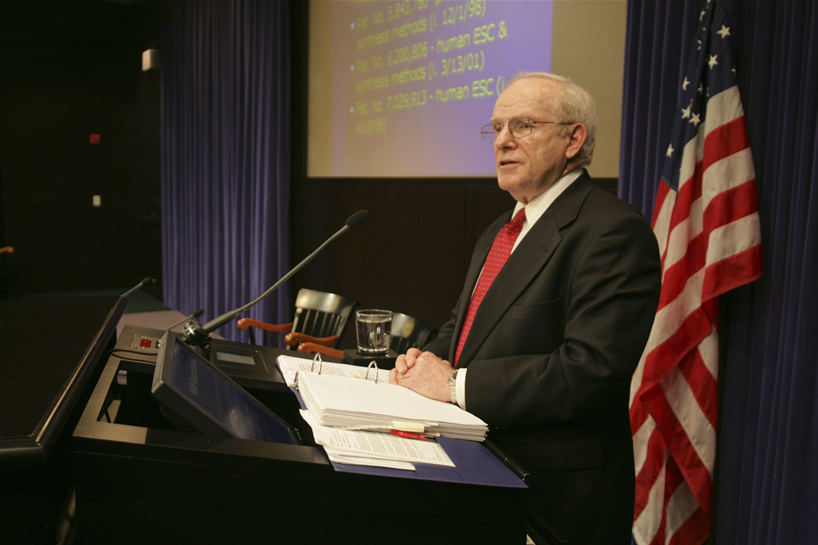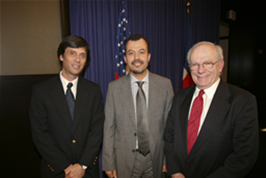"Patenting Science: The Implications of the Embryonic Stem Cell Patent Battle "
Charles Reed discusses patent law and human embryonic stem cell research.
James A. Baker III Institute for Public Policy
February 21st, 2008
 |
 |
|---|
In 1966, the U.S. Supreme Court reviewed the case, Graham v. John Deere Company, which addressed the 1952 patent law requiring patents to be nonobvious. Justice Tom Clark, writing for the majority, clarified a series of considerations to be reviewed when determining patents. At the Baker Institute event, "Patenting Science," we will discuss the court's decisions and its implications on stem cell research, specifically the recent rejection of the patent for human embryonic stem cells and the method of their creation.
The method for isolating human embryonic stem cells was pioneered at the University of Wisconsin by James Thomson in 1998. Since this pivotal achievement, the Wisconsin Alumni Research Foundation (WARF) has obtained three patents for both the techniques and the cells themselves. Because of these patents, anyone desiring to perform research involving the cells or techniques must pay licensing fees, and if any marketable products are developed, royalties would also be required. Although WARF has waived licensing fees for university-affliated researchers, there is a hesitation in the scientific community toward initiating stem cell research projects that could evetually cross legal boundaries. However, these patents are currently being challenged on the basis that the stem cell isolation techniques were not "noobvious," rather that Thomson and his team at the University of Wisconsin simply performed the next obvious step given the state of stem cell research at the time. In 2007, the U.S Patent and Trademark Office revoked the patents. This ruling is still being challenged by WARF in the U.S. federal court system, and the impact of their ruling greatly affects embryonic stem cell research in the United States as well as across the world.
Charles Reed, lawyer and partner at Kile, Goekjian, Reed & McManus, will discuss the recent rejection of the patent for human embryonic stem cells and the method of their creation. This discussion will be followed by remarks by Rchard Behringer, the Deputy Chair of the Department of Molecular Genetics at The University of Texas M.D. Anderson Cancer Center.
This program is sponsored by the Baker Institute's Science and Technology Program; it is the first discussion from the International Stem Cell Policy Program, newly endowed by the State of Qatar and the Emir of Qatar, His Highness Sheikh Hamad Bin Khalifa Al-Thani.
Please contact Kirstin Matthews for questions,
problems or comments about this web site
